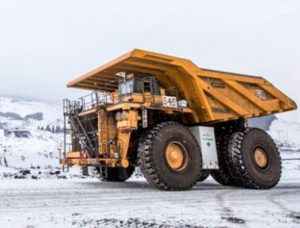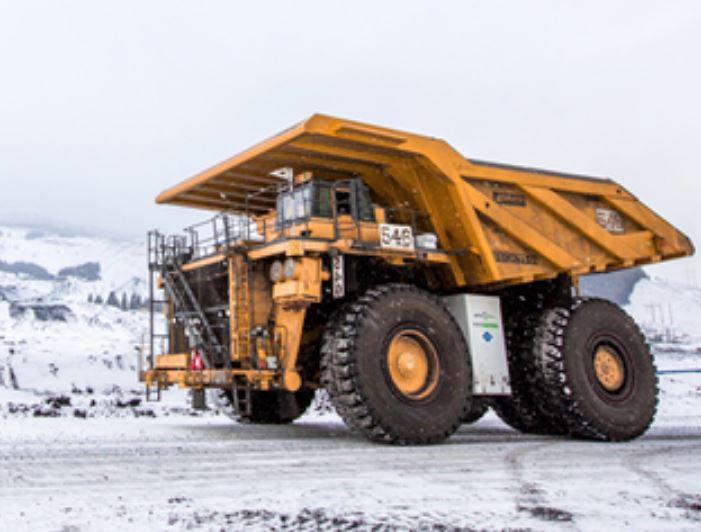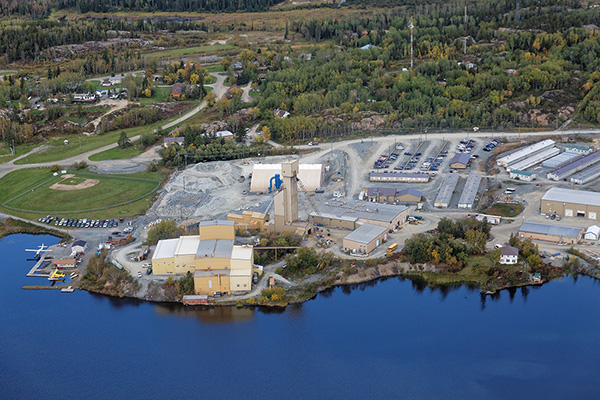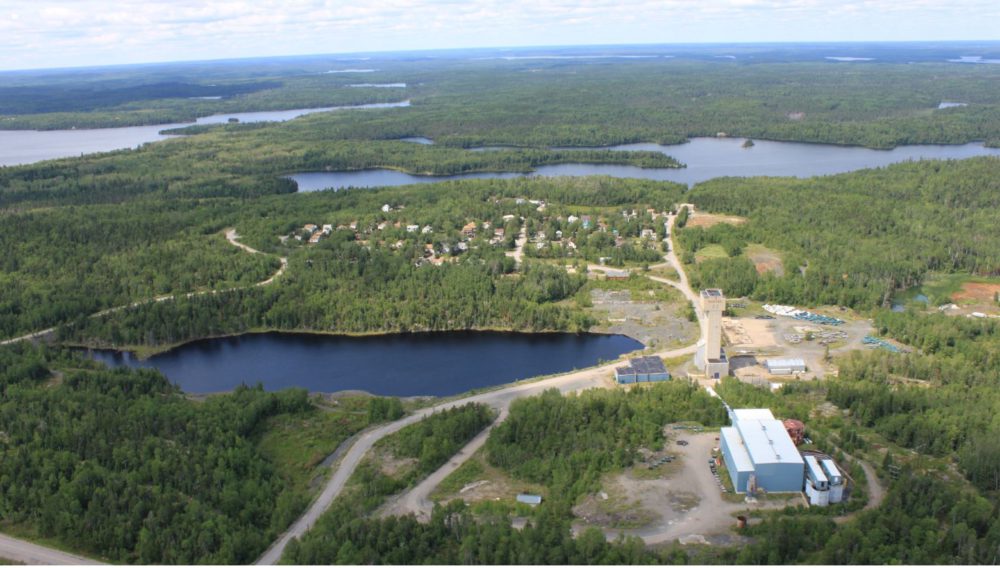VICTORIA, B.C. – The British Columbia government delivered its 2018 budget on Feb. 20, and now the
Mining Association of British Columbia takes a look at measures to mitigate the higher costs associated with the carbon tax.
[caption id="attachment_1003722121" align="alignright" width="300"]
 Six haul trucks at Fording Coal are running on liquefied natural gas as part of a cost cutting pilot program. (Image: Teck Resources)
Six haul trucks at Fording Coal are running on liquefied natural gas as part of a cost cutting pilot program. (Image: Teck Resources)[/caption]
For the past 10 years, the B.C. carbon tax has provided the incentive to cut greenhouse gas emissions, but it has also increased the cost of production for the mining industry, says the MABC. The problem is that the B.C. mining industry must absorb the carbon tax costs, thereby reducing its global competitiveness.
The association does acknowledge that the government is going to address this challenge through a new incentive and investment program. This program will be funded by the carbon tax increases greater than the current $30/tonne tax.
But is it enough?
“In order for B.C.'s mining industry to truly be competitive, program design needs to include the entire amount of carbon tax paid by industry,” insists the MABC.
The MABC also pointed out another aspect of the provincial budget: the implementation of a new employer health tax beginning in 2019. Of particular concern is that many employers will be paying both the new health tax as well as what they already pay on behalf of their employees for the provincial Medical Services Plan premiums.
Share your thoughts with MABC president and CEO Bryan Cox at 604-681-4321 or
bcox@mining.bc.ca.

 Six haul trucks at Fording Coal are running on liquefied natural gas as part of a cost cutting pilot program. (Image: Teck Resources)[/caption]
For the past 10 years, the B.C. carbon tax has provided the incentive to cut greenhouse gas emissions, but it has also increased the cost of production for the mining industry, says the MABC. The problem is that the B.C. mining industry must absorb the carbon tax costs, thereby reducing its global competitiveness.
The association does acknowledge that the government is going to address this challenge through a new incentive and investment program. This program will be funded by the carbon tax increases greater than the current $30/tonne tax.
But is it enough?
“In order for B.C.'s mining industry to truly be competitive, program design needs to include the entire amount of carbon tax paid by industry,” insists the MABC.
The MABC also pointed out another aspect of the provincial budget: the implementation of a new employer health tax beginning in 2019. Of particular concern is that many employers will be paying both the new health tax as well as what they already pay on behalf of their employees for the provincial Medical Services Plan premiums.
Share your thoughts with MABC president and CEO Bryan Cox at 604-681-4321 or
Six haul trucks at Fording Coal are running on liquefied natural gas as part of a cost cutting pilot program. (Image: Teck Resources)[/caption]
For the past 10 years, the B.C. carbon tax has provided the incentive to cut greenhouse gas emissions, but it has also increased the cost of production for the mining industry, says the MABC. The problem is that the B.C. mining industry must absorb the carbon tax costs, thereby reducing its global competitiveness.
The association does acknowledge that the government is going to address this challenge through a new incentive and investment program. This program will be funded by the carbon tax increases greater than the current $30/tonne tax.
But is it enough?
“In order for B.C.'s mining industry to truly be competitive, program design needs to include the entire amount of carbon tax paid by industry,” insists the MABC.
The MABC also pointed out another aspect of the provincial budget: the implementation of a new employer health tax beginning in 2019. Of particular concern is that many employers will be paying both the new health tax as well as what they already pay on behalf of their employees for the provincial Medical Services Plan premiums.
Share your thoughts with MABC president and CEO Bryan Cox at 604-681-4321 or 




3 Comments
Jim
Carbon taxes are strictly a tax grab and only stifle the economy. CO2 is not a pollutant as we exhale over 2000 ppm in our exhaled breath.
Also there is no link between carbon dioxide and climate fluctuations; just read what the real scientists are saying.
In fact the climate started a cooling trend several years ago!
Robert Fisher
Hi Jim
I agree with you 100%. It is an additional tax since politicians dont have the stomach to raise either PST, income or GST taxes. Anyone heard of the Boston Tea party?
amastore
Jim says:, thank you for this post. Its very inspiring.